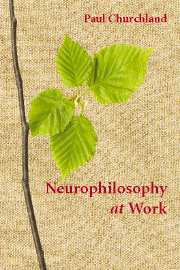Book contents
- Frontmatter
- Contents
- Preface
- Provenances
- 1 Catching Consciousness in a Recurrent Net
- 2 Functionalism at Forty: A Critical Retrospective
- 3 Toward a Cognitive Neurobiology of the Moral Virtues
- 4 Rules, Know-How, and the Future of Moral Cognition
- 5 Science, Religion, and American Educational Policy
- 6 What Happens to Reliabilism When It Is Liberated from the Propositional Attitudes?
- 7 On the Nature of Intelligence: Turing, Church, von Neumann, and the Brain
- 8 Neurosemantics: On the Mapping of Minds and the Portrayal of Worlds
- 9 Chimerical Colors: Some Phenomenological Predictions from Cognitive Neuroscience
- 10 On the Reality (and Diversity) of Objective Colors: How Color-Qualia Space Is a Map of Reflectance-Profile Space
- 11 Into the Brain: Where Philosophy Should Go from Here
- Bibliography
- Index
2 - Functionalism at Forty: A Critical Retrospective
Published online by Cambridge University Press: 24 July 2009
- Frontmatter
- Contents
- Preface
- Provenances
- 1 Catching Consciousness in a Recurrent Net
- 2 Functionalism at Forty: A Critical Retrospective
- 3 Toward a Cognitive Neurobiology of the Moral Virtues
- 4 Rules, Know-How, and the Future of Moral Cognition
- 5 Science, Religion, and American Educational Policy
- 6 What Happens to Reliabilism When It Is Liberated from the Propositional Attitudes?
- 7 On the Nature of Intelligence: Turing, Church, von Neumann, and the Brain
- 8 Neurosemantics: On the Mapping of Minds and the Portrayal of Worlds
- 9 Chimerical Colors: Some Phenomenological Predictions from Cognitive Neuroscience
- 10 On the Reality (and Diversity) of Objective Colors: How Color-Qualia Space Is a Map of Reflectance-Profile Space
- 11 Into the Brain: Where Philosophy Should Go from Here
- Bibliography
- Index
Summary
For those of us who were undergraduates in the 1960s, functionalism in the philosophy of mind was one of the triumphs of the new analytic philosophy. It was a breath of theoretical fresh air, a framework for conceptual clarity and computational rigor, and a shining manifesto for the possibility of artificial intelligence. Those who had been logical behaviorists rightly embraced it as the natural and more penetrating heir to their own deeply troubled views. Those who had been identity theorists embraced it as a more liberal but still agreeably robust form of scientific materialism. Those many who hoped to account for cognition in broadly computational terms found, in functionalism, a natural philosophical home. Even the dualists who refused to embrace it had to give grudging approval for its strictly antireductionist stance. It had something for everyone. Small wonder that it became, and has largely remained, the dominant position in the philosophy of mind, and, perhaps more importantly, in cognitive psychology and classical AI research as well.
Whether it still deserves that position – indeed, whether it ever did – is the principal subject of this essay. The legacy of functionalism, now visible to everyone after forty years of philosophical and scientific research, has not been entirely positive. But let us postpone criticism for a moment, and remind ourselves of the central claims that captured so many imaginations.
- Type
- Chapter
- Information
- Neurophilosophy at Work , pp. 18 - 36Publisher: Cambridge University PressPrint publication year: 2007
- 1
- Cited by

